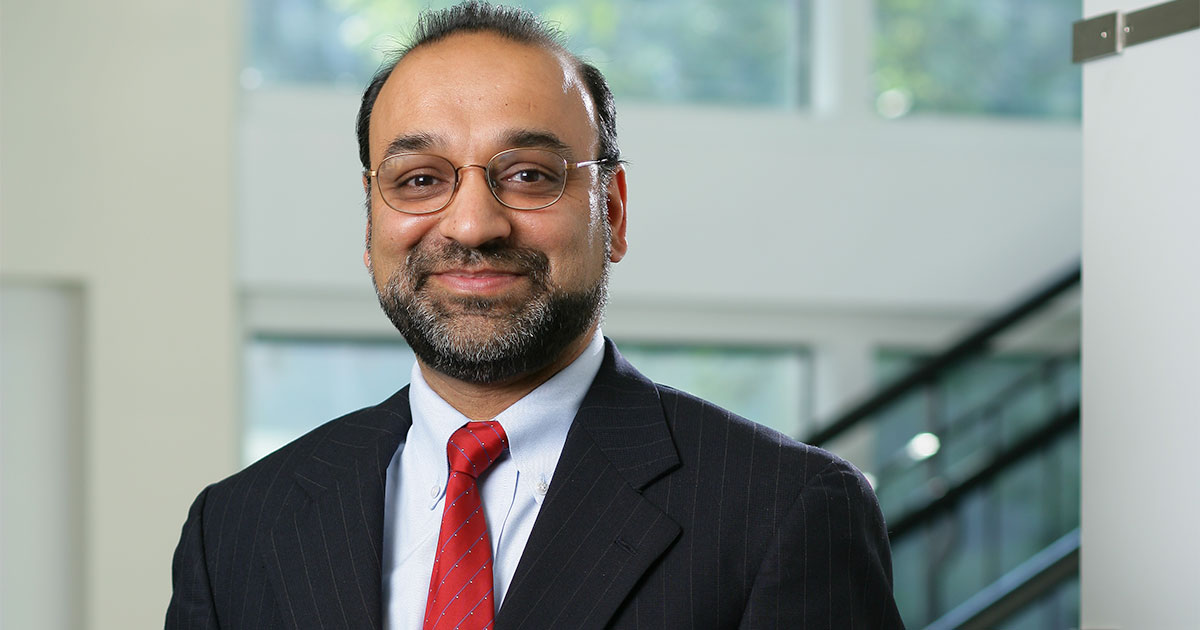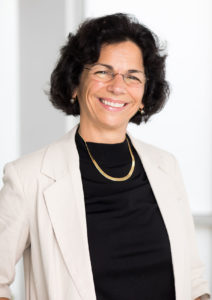Faculty Research and the Power of Curiosity

For Dhruv Grewal, the world is full of questions looking to be answered.
A marketing professor at Babson College and a prolific researcher, he is always searching for topics to investigate. “I begin with the idea,” Grewal says. “The idea is the key.”
Those ideas are everywhere. To find them, he listens to the news, attends seminars, reads journals and blogs, and talks with people, lots of people. Grewal will chat with colleagues, executives, workers, and just about anybody.
Any situation may provide an insight. He likes to travel because of all the new people he ends up meeting. “I meet random people in the hotel or planes,” says Grewal, the Toyota Professor of Commerce and Electronic Business. “Just having conversations allows me to see what I don’t know.”
He enjoys talking with his students, whose experiences are so different from his. “I learn from interacting with them,” he says. “If my students are undergraduates, I learn what 18- or 19-year-olds find interesting.”
As someone who has done a lot of research on marketing and retail, one of his favorite activities is going to the mall. Walking and observing, he looks at merchandise, how it’s displayed, how it’s priced, how customers check it out and ultimately decide whether to purchase it. Such a trip leaves his brain buzzing with possibilities. “My mind starts thinking,” he says. “Before you know it, you have a project.”
All of these conversations, all of these trips and mall excursions and everyday observations, have been the impetus for much research. Grewal has authored or co-authored more than 180 academic articles, and Elsevier recently recognized him, along with a host of other Babson professors, as being in the top 3% of all cited scholars across the course of their careers.
Such robust scholarly work has implications for the classroom and the world at large, and it demonstrates the power of curiosity for Grewal and his Babson colleagues. “I have always had an intellectual curiosity. That curiosity is really important for an academic,” Grewal says. “I feel like I am in perpetual learning mode.”
Real-World Impact
Another Babson scholar recognized by Elsevier was Gina O’Connor, a professor of entrepreneurship and the Fischer Family Term Chair. O’Connor’s research will be highlighted this coming Friday, January 28, along with the work of a number of other College professors, at Babson Faculty Research Day, an annual showcase of the wide range of scholarship happening at Babson.

Just as with Grewal, O’Connor is driven to learn. When she conducts an insightful interview for her research, she finds that she often can’t sit down afterward and may seek out colleagues to discuss it. “It is so exciting to learn new stuff,” she says.
Throughout her career, O’Connor has studied innovation. She was drawn to the work in the 1990s, when so many American companies seemed lacking in innovation and were falling behind foreign competitors. “U.S. companies were losing,” she says. “What was the problem? I wanted to understand.”
O’Connor found that many companies didn’t approach innovation in a systematic way. They may have had talented employees, and they may have been sitting on great ideas and rich intellectual property, but without proper processes and management, their efforts to innovate stumbled along.
That ineffectiveness can have real-world consequences, extending far beyond a company’s bottom line. What products or services are lost that could have improved our day-to-day lives? “It’s a lost opportunity to make the world a better place,” O’Connor says.
O’Connor’s research informs her work at Babson Executive Education, where she helps companies prevent the stagnation of innovation. She wants them to avoid the fate of a company such as Kodak, a once vibrant and inventive institution that was slow to transition to digital photography even though it had created the first digital camera. The company eventually declared bankruptcy. Thousands lost their jobs. “Three generations of families were employed there. That was such a huge disruption to communities,” O’Connor says. “There is no reason they should have failed.”
Implications for the Classroom
Research also leaves an impact in the classroom. Grewal recently was ranked No. 26 in the world by Research.com among business and management researchers. In his work, he is collaborating with researchers from multiple disciplines and from all over the globe. “It allows me to work with people with different orientations, different skills, different thought processes,” he says. “If you have compatibility, your ideas and their ideas combine into something that neither of you thought of before.”
All these experiences influence his teaching. “I feel like it serves me well to be able to bring current content to the classroom,” he says. “I feel like I’m bringing currency and relevancy while building up scholarship that is beneficial to the field.”
“I have always had an intellectual curiosity. That curiosity is really important for an academic. I feel like I am in perpetual learning mode.”
Dhruv Grewal, the Toyota Professor of Commerce and Electronic Business
Besides Grewal and O’Connor, other Babson scholars recognized by Elsevier for their career research included Candida Brush (F.W. Olin Distinguished Professor of Entrepreneurship), Tom Davenport (President’s Distinguished Professor of Information Technology), William Gartner (Bertarelli Foundation Distinguished Professor of Family Entrepreneurship), and Philip Mirvis (senior fellow in social innovation).
Additionally, in its annual list of researchers for 2020, Elsevier highlighted Andrew Corbett (The Paul T. Babson Distinguished Professor of Entrepreneurial Studies) and Rob Cross (Edward A. Madden Professor of Global Leadership) as being in the top 3% of all cited scholars.
Ultimately, all of this considerable research by Babson professors contributes to the understanding of how business and the world works, as their scholarship inspires other scholars, who, in turn, build upon it. “I’m extremely gratified,” says Grewal, “that the work is being used by other scholars, students, and practitioners.”






